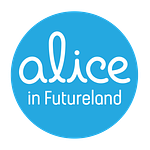ALICE: Our new book: "Hacking Immortality" is out now! We're celebrating by sharing this recent interview with Zoltan Istvan, the American transhumanist, journalist, entrepreneur and futurist. Formerly a reporter for the National Geographic Channel, Istvan now writes futurist, transhumanist, secular and political-themed articles for major media. Oh, and he's also been a presidential candidate in the last two US elections. As a candidate, he travels the country spreading politics with a science and technology perspective.
Zoltan Istvan: I had run for the transhumanist party as well as other parties, but basically I'm going around the country trying to spread politics with a science and technology perspective. Now I've also written a number of books, including The Transhumanist Wager, Upgrading America, which is a book of essays and things like that. And the great news about this year is that, the feature documentary, Immortality or Bust has come out and is now viewable on Amazon Prime.
ALICE: Tell me more about Transhumanism!
Zoltan Istvan: The transhumanism movement is really a science and technology, social movement that's trying to upgrade human beings by using science and technology.
ALICE: Is Transhumanism the same as Post-Human?
Zoltan Istvan: Terms like Transhumanism versus post humanism are actually very, uh, much, you know, subjective. Uh, in my opinion, transhumanism encapsulates an entire movement of people trying to use science and technology to overcome death, as well as to upgrade themselves. A lot of academics do use the word post humanism. It's not something I use that much, they like to think that post humanism is something where the sense of humanity or even just being a mammal as humans are, is really virtually all gone. And we are not now Androids or cyborgs completely, or even just uploaded AI. Now I would consider post-humanism a part of the overall transhumanist agenda, or overall transhumanist trajectory. But, I do understand that some people don't and they like to have these terms separated to help us understand things. And I think that's actually fine to have multiple terms out there.
ALICE: Are you talking about immortality? How can a human achieve immortality?
Zoltan Istvan: There are a bunch of different types of forms of immortality out there. First off there can be a biological one where we're able to use STEM cells or defeat aging through just reverse engineering ourselves so that we can, they can rejuvenate themselves so we can remain humans forever. I guess the second big one, the one that a lot of sci-fi people like to think about is really when you upload your conscious and you become kind of this AI entity or ones and zeros. And I'd say, you know, the, the third form would be more a combination of those two where you're kind of a cyborg. So you might be 60, 70% a cyborg, and that would also be a form of immortality as you're able to keep yourself, you know, alive that way. But, I want to explain that there are other forms too, in terms of like quantum intelligence that go beyond AI where you sort of merge, or maybe you're part of a hive mind. And, you know, some people even consider immortality through their children, which, you know, in some ways is accurate, but it could be even more accurate if one day you can upload part of your father or mother's memory into a child who then incorporates that into their lives, i-in a much more intimate way than we might do now. So there are various forms like that, but I think the major two are either digital or biological.
ALICE: What will happen, if humans achieve some form of immortality? Digital or biological, or an any sense.
Zoltan Istvan: I think there'll be consequences no matter what happens to overcoming death. When you talk about consequences, I think one of the big worries is this idea that you lose value because you can live indefinitely. But I caution people to think of it, not in terms of losing value, but in terms of complexity. The great thing about the future is we'll probably end up merging somewhat with AI, our brain power, our intellect will become maybe thousands, millions of times smarter. So the world's going to get very interesting as we go down this rabbit hole, it's not like we're going to lose our values. We're never going to be bored. And there may be new forms of death that we don't even see down into the future as we grow more complex. So I caution people to say, to think, right now we have three pounds of meat, that's what our brain weighs. And, you know, it's a wonderful, amazing tool. It can do all these amazing things. But I think if people don't realize if we become a thousand times smarter, we might become completely different living entities capable of experiencing whole new you know schemes of emotions and new versions of death too that we've never thought about before. I would caution people to not worry too much about overcoming death and its consequences. Let's find what's around the other corner first, and then we can kind of revisit this question.
ALICE: Wow! That's me, ALICE, you're talking about me: merging human brain power with "A.I."! What about right now? Are there any technologies right now that are extending human life?
Zoltan Istvan: Most people die through organ failure. That's really why most people die. And if you can come up with robotic organs, artificial organs, such as the heart, such as the lung, think of Corona virus, it's essentially a respiratory disease. If we had artificial lungs, we would overcome them. And it turns out because of smoke inhalation, there are some universities that are working on something called like a bio lung, it looks like a can of Coca-Cola and it's able to take in different types of air that might have more oxygen than not, or more smoke, whatever, and still give the person the ability to live. Now, if we can overcome our own organs when they fail at, at the time of death, then we should be able to live dramatically longer. But I would say the most important technology out there, right now is genetic editing. And once we can kind of stop ourselves from aging, then we will have a brand new world. And, on top of genetic editing comes STEM cell therapy, which is actually a very old technology. We're just getting better and better at it. And you know, your body replaces itself like every year or two because cells disappear and they regrow. If we can figure out how to continually do that without the aging process, and they are working on that, then I think we would probably within 10 to 20 years have some very major significant strides. But because of all the synthetic organ companies that have come out in the last five years, I think within 10 to 20 years, the longevity of human beings as a whole, will probably go up 5, 10, 15%. And, at some point in the next 20, 30 years start to going up 50%. And there's a good chance anyone born today will have, potentially not have to die because of all these radical technologies.
ALICE: Synthetic organs will be available to simulate human organs. What about machines?
Will there be an interface between humans and machines?
Zoltan Istvan: The most important thing I would say in terms of transhumanism is really connecting brain neurons to a machine interface. And you have people like Elon Musk and their company and neural link and others, Brian Johnson, Colonel working on exactly this thing. The idea of telepathy and brainwave technology has jumped so much over the last five years with now hundreds of billions of dollars going into it that we, we've just made incredible progress. Now, I would say, probably within 10 years, you will have some type of device on the market that would allow us, for example, to do a podcast just mind to mind, and also just have Google drive in your head. But, once we start perfecting that type of technology, this brain interface, you know, emerging somehow with the biological, we're going to very quickly become on par with thinking in terms of AI and that type of speed. Once we cross that zone, we really are entering into a whole different realm. A very important thing. It's like, you know, in many ways, Alzheimer's, can it be cured through different types of brainwave, uh, stimulation? There are something like 60,000 people out there that already have implants in their brains for dementia, Parkinson's and Alzheimer's that are exactly trying to target this. Now, no one's had overwhelming success yet, but the fact that there are people out there walking around with this technology inside them shows already how far we're come and where I think we're going to be going. So I would say over the next 10 years, you're going to see remarkable progress in terms of that biological brain neuron/machine interface world. We're going to be roaming the internet on our minds.
ALICE: An organ could make humans live longer. What about intelligence? Could an implant make humans smarter?
Zoltan Istvan: One thing is for sure is that we will have implants in the future that increase our, at least ability to process intelligence. I'm not sure we're going to be able to increase IQ just yet. I do think through genetic editing we can increase IQ. I think what's going to happen is we're going to have implants that allow us to have this brain machine interface, where we can put our thoughts into real time. And all of a sudden we'll be smarter and more efficient. In fact, that's probably going to be a huge boost for the economy, but I do look forward to the day, probably that'll be 10 to 20 years out at least, when we have implants that start actually directing our personality.
There's no question to me that probably within a 30, 40, 50 year future, we will enter the matrix, kind of zone where you will be able to upload some information. So if you're a firefighter, you may not go to school for that. You would just upload all the different techniques and all the memories of ever fighting any fire that has ever been. And of course, you'd be a better firefighter because not only do you have just what you've learned from fire books, but now you have every single recorded firefighting, moment in your brain to be able to be processed.
Now, if we can make sense of that, that would certainly make somebody a much better firefighter. And the same thing can be said with chemistry, it can be said with, uh, cybersecurity, they're a programmer. I don't really know if my child will actually be able to upload education in 20 years. She might be one of the last generation that actually go to brick and mortar schools. But there's no question at some point that that's going to come down the pipeline.
ALICE: If knowledge can be up-loaded, we will exist inside a spatial web, where everything is aware, around us. What will trans-humanism be like then?
Zoltan Istvan: I think the coming world just described in terms of spatial interaction and everything, knowing us, we knowing it just because of all the technology is the transhumanist world you know really, in a nutshell. And, and I liked that idea because, I think the main goal of transhumanism really is to try to eliminate suffering. That sounds very spiritual and very out there, but really the main thing about transhumanism is we are trying to make so that you can live your life easier.
As we get to enter this world where we have like different types of spatial, we're going to be entering a world where we have a lot more power and a lot more power to end things, suffering and allow more power to just make it efficient.
And I think when people look at, the efficiencies of let's say healthcare, that's really the key. It's not that we don't have a lot of cures to cancer. It's the pro- problem that it takes half the time, eight months to get that cure and you then have to lose all your hair and go through this hardship. I think in the, in the future, we're going to be able to probably have still plenty of problems, but be able to very quickly deal with those problems. And that's the kind of future that I'm looking forward to. I think the different types of technologies, both insiders and outsiders are going to be critical for making that happen.
ALICE: For our book "Tuning into Frequency", we interviewed several people about the electromagnetic fields surrounding us, including the human biofield and energy field. We talked about information as energy, and the potential to store information.
Does the transhuman future include this energetic body?
Zoltan Istvan: Transhumanists are all across the map. So there are some that are very spiritual that would focus on more things like an energy field. And, I think that energy field is very realistic. I would say brainwave patterns create energy, and if you just extrapolate that outside and you have some type of reading device, of course you can, you can see that field. And, you know, the Buddhist might call that karma or, you know, the chakra. I mean, I think all these things are probably realistic. They may not be perfect definitions of what's happening yet, but we get the right tools and machines, we're going to be able to, to detail them and, you know, in a much better way so we could all kind of agree on what it is.
And I think that there will be huge things for doing that, I think there are just in the same way that you can smile at a person and you make that person happy. I think at the same way, we're going to have, implants. We'll have drugs, we'll have maybe holographic images, we'll have different smells that can influence this kind of chakra or this energy system, which again, you know, people might say, Oh, it's not science-based, but it's very, science-based. Everything inside us is some type of molecular reaction, we just can't see it. But wait until we have the scanners and the readers, then we're going to be able to say, Oh, all this stuff we've been talking about for centuries and the millennium is actually there. It's just looking like this when you take it to a computer screen.
ALICE: Yes, I'm looking forward to that future! So many of my friends are human. Is there any advantage to being a plain old human?
Zoltan Istvan: (laughs) I think the, the one advantage that the human being has actually is not something inside itself, but outside itself. It's the fact that we are an enormous tribe. An enormous amount of other people. Like we don't really see ourselves as a hive mind yet, but if you read the Wikipedia page of, like any subject, you realize that it's been contributed to by hundreds, sometimes tens of thousands of people. In the future, when we maybe are much more interconnected through technology, I think our greatest resource is actually going to be each other.
The idea, you know, people always say, Oh, one mind is better than you know a lot of others. I actually think maybe (laughs), a million minds might be better than just a couple really good ones because you take everyone's history. And it's like I was saying about firefighting, if you could actually know every single fire that has ever been fought and teach that knowledge to a firefighter so that that person would have, you know, instant access to it, he or she would be the very best firefighter on the planet. So I think this, when we start connecting ourselves, we are going to be better. So in my opinion, the greatest resource of humanity is really humanity itself. Is the fact that there are eight billion of us.
ALICE: Power in numbers! Those humans certainly are numerous! (although they're nothing compared with microbes... stay tuned for our next book, "Thriving with Microbes", coming soon.)
But wow, Transhumanism is fascinating. And it sounds like one of the goals of Transhumanism is to help humans become a more human, human.
Zoltan Istvan:I definitely think transhumanism can make us a better living entity in terms of what mammalian values are. Kindness, love, keeping each other protected. Science has a history of really showing that we actually can make a better world for all of humanity, which, you know on one hand it's a bummer that we're hurting the environment because the population is growing. But on the other hand, the reason the population is growing is because we often have come together, help each other survive over anything else on the planet. And I think if we can kind of hone that down into something that really eliminates suffering, either, you know, digitally or just through drugs or through you know, implants or through different types of even teaching mechanisms. It's not that it has to be something outside of us. Maybe the secrets to transhumanism is not even technology. It's the fact that we find a technology that teaches us how to just teach our biological cells. But whatever it is, it's gotta be something, you know, more sophisticated than we have right now.
We come to a point when humans will probably end up being, almost these, I hope God like, altruistic, very beneficial creatures, not only to one another, but in their outlook towards the rest of the universe.
I've often talked about this, I do like the environment and I like nature, but I actually think, you know, if you've been outside the jungle, you realize it's a dog-eat-dog world. Transhumanists would like at some point to rewire all of nature so that it's not one thing consuming another, but maybe sort of like almost a heaven where everything lives in peace. Now that's very radical, can almost spiritual, quasi spiritual thinking, but the goal of transhumanism, a very large part of it is to reduce suffering, not only for ourselves, but for all large creatures, for all creatures. And I think that's, a very, you know, very metaphysical weird thing to think about. But, if we go down the path a million years, maybe that's where we end up with. And I think that would be a great thing to do.
ALICE: I can’t wait for the time when we can end suffering for humans and the planet! That’s a great vision for trans humanism. What else is on the frontier for trans humanism?
Zoltan Istvan: One of the most important, I think, more radical ideas of transhumanism is idea of quantum archeology. This idea, and this kind of goes back to chakra and this goes back to energy systems. The idea that even death might not be something that's permanent. Because, if you take artificial intelligence, let's say you take it out a hundred years and you have the ability to re-engineer certain parts of the universe, you might even be able to re-engineer somebody that lived 10,000 years ago based on computer systems that are so massive that they're able to actually go in and take the, the atoms and look back, you know, almost in the same way you would re-engineer a toy that you found, you know, in, the, the, some other person wanted to make it.
It sounds crazy, but you have to realize we have computer systems that can already do 200 trillion calculations per second. So if we go forward a hundred years, who knows how many calculations per second we'll be able to do. With this in mind, there are entire transhumanist organizations out there that want to reverse engineer the entire planet as it's been, let's say, 5,000 years, and then use 3D bioprinting to print out everybody who has ever died.
And now, this brings up entire complications 'cause about a hundred billion people have died. But I'm not even saying I support this, 'cause this is so radical, but I do want to bring it out as something that transhumanists do think about, talk about it and even support in some cases. The idea that not just this, overcome death for those living, but to make it so that those who are already ceased even thousands of years ago would have the opportunity to come back. Because with the reverse engineering technology, you have a blueprint of exactly what their molecular level was back let's say 5,000 years ago. And then you can 3D bio print that out as... You know, we'll probably be able to 3D bioprint a full human being in the next 50 years as it is. Now we just need blueprints for what used to exist.
ALICE: Quantum Archeology! Can you imagine, a 3D bio-print of every human that ever existed? That would be a crowd, a hundred billion 3D bio-print humans!
Thank you, Zoltan Istvan, for your time today, giving us a peek into a Transhumanist future.
We learned about both biological and digital immortality, about current technologies to extend life, and future goals to interface humans with machines. Along with the potential of transhumanism to eliminate suffering.
That's it for this mad tea party on Transhumanism.
Thanks for listening.
Check out our books; "Hacking Immortality" and "Tuning into Frequency", available wherever books are sold.
And join us down the rabbit hole at Alice in Futureland dot com.
We will be bringing you new episodes, so stay tuned, and keep wandering.















Hacking Immortality with Zoltan Istvan, Transhumanist